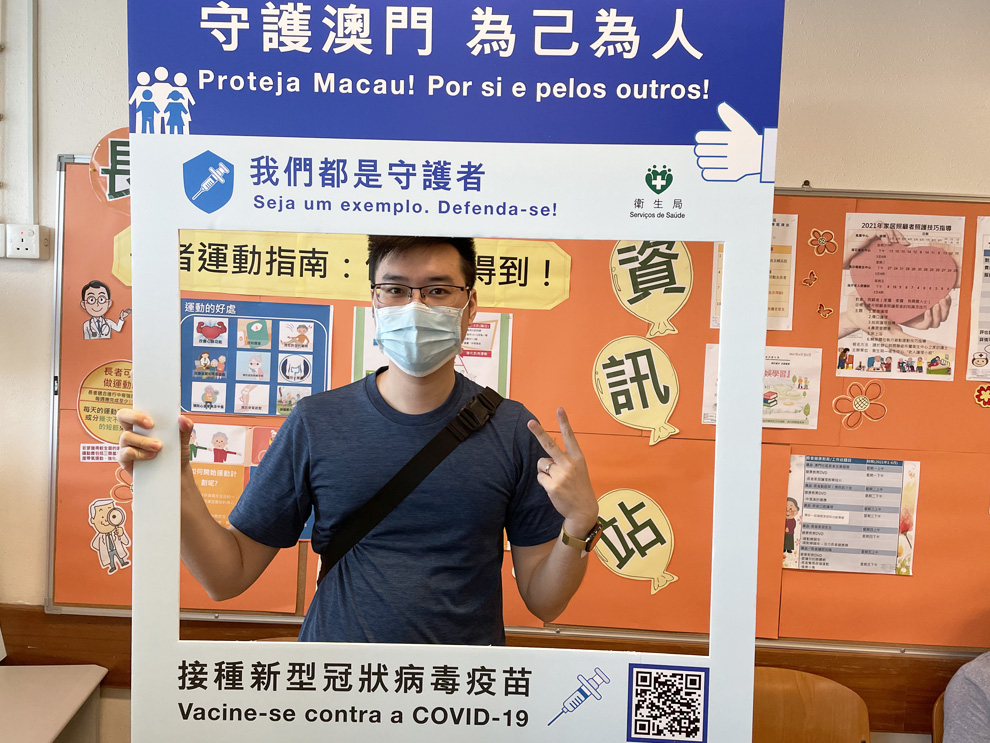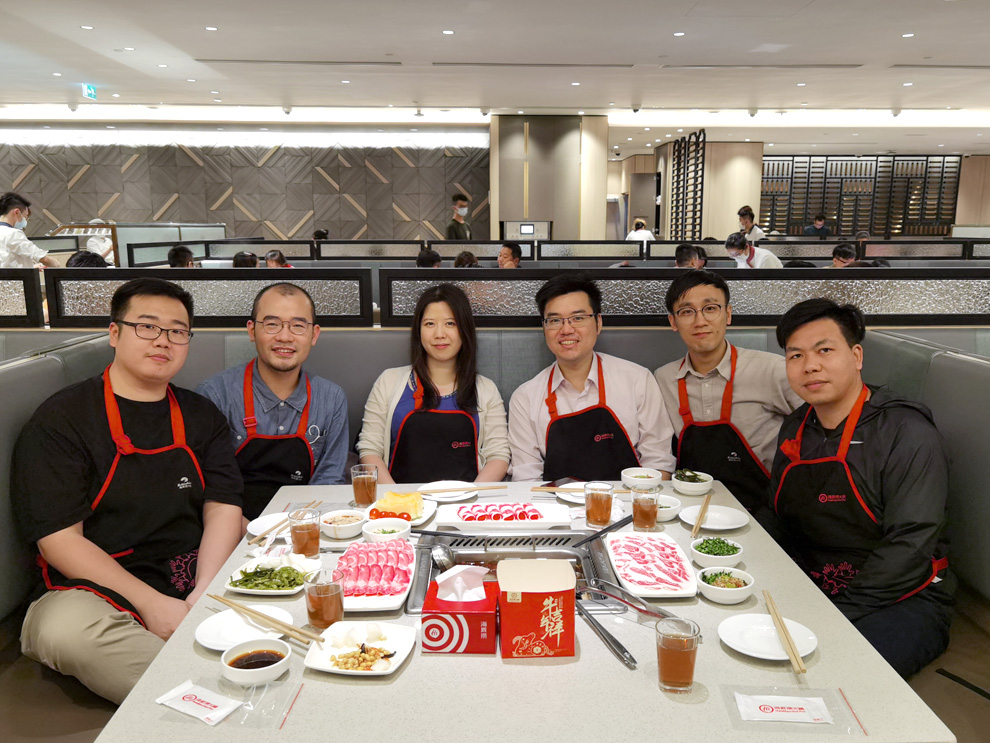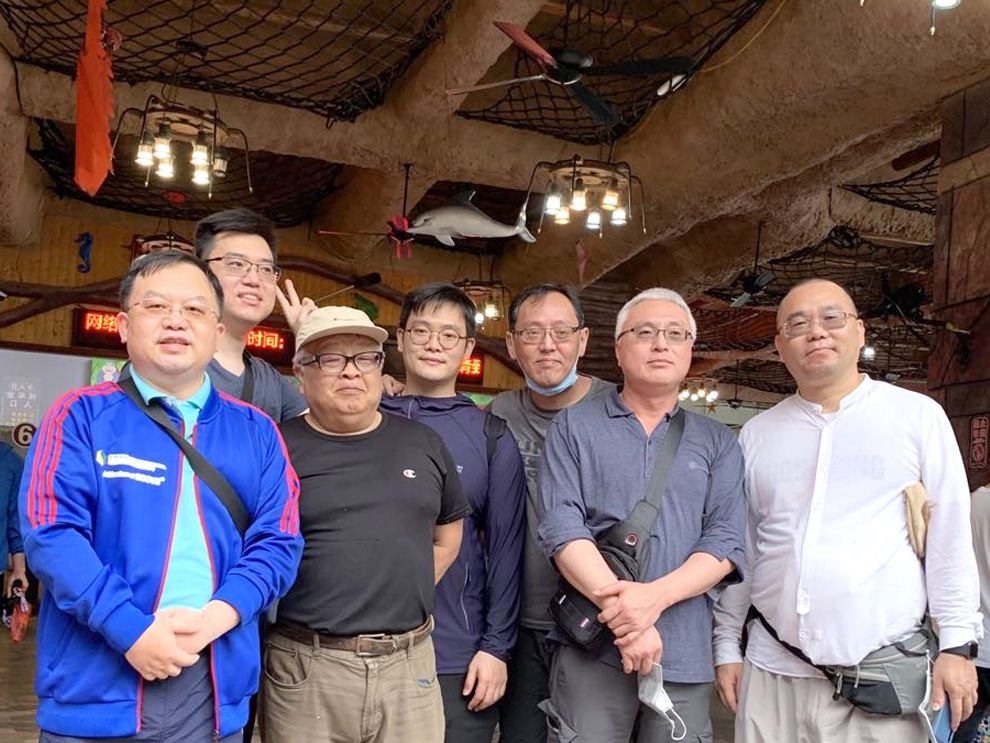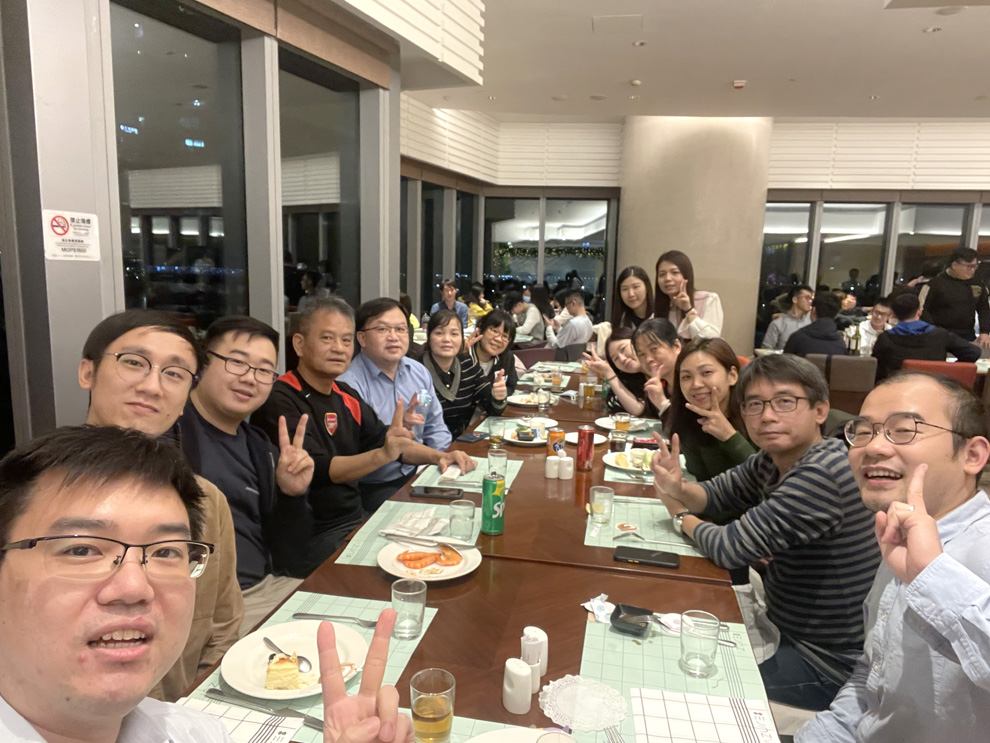CTCI Family
CTCI地球村
Macau is not Simple
— Min-Chao Chao, Finance and Accounting Manager, SINOGAL-Waste Services Co., Ltd.
Could you briefly tell us about yourself?
Hi, I’m Morgan Chao. I was assigned to Macau in December of 2020 to assist a joint-venture project company, SINOGAL (which is a consortium of four companies, i.e., CTCI Corporation, ECOVE, CONSULGAL, and CONSUL-ASIA), to operate the Macao incineration center and Macao special and hazard waste treatment plant, as the Finance & Accounting Manager. I’m honored that our Vice President granted me this opportunity after serving in CTCI for more than two years. After obtaining a graduate degree, I served as an accounting specialist for a construction company, and then for a cooling tower manufacturing company in Taiwan over a period of about five and a half years before joining CTCI group, which is the largest company I’ve worked for in my career.

Get vaccinated for COVID-19.
What made you join CTCI?
Since graduation, I have worked for several small- and medium-sized companies in Taiwan and experienced an economic recession during those periods. I feel that my growth was limited and my career was not very stable. In order to pursue a stable career, I knew that I must do my best in every position, and gain recognition from my supervisors in order to expand and broaden my career path. My work experience in domestic engineering companies makes me want to stay in this field for further professional development. Comparing the major engineering companies in Taiwan, including CECI Engineering Consultants, Inc., CTCI Group, and Sinotech Engineering Consultants, Inc., CTCI has the advantage of having the largest portfolio of projects/ branches around the world and offers the greatest opportunities for employees to gain overseas assignment experience. Considering that the group has the largest scale, standing on the shoulders of giants, I can learn from the experience of my predecessors and grow professionally. Last but not least, CTCI provides a comprehensive mechanism for employees relocated overseas to return to the headquarters, so that employees can not only enrich their career experience, but also take care of their family. For these reasons, I am glad to have this opportunity to join CTCI group.
Could you give us some examples of the foreign culture and people that impress you during your stay (when being relocated)?
Macau is a special place. It was under the jurisdiction of Portugal before the transferring of sovereignty to the People's Republic of China in 1999 as the Macao Special Administrative Region. Despite its small size, Macao has a very rich cultural heritage. In addition, functioning under a special role as “one country, two systems” similar to Hong Kong; Macao continues to receive political and economic support from the Chinese government, while it is committed to maintaining the cultural heritage of more than 400 years from Portugal’s rule. Along with nine cities of Guangdong Province and Hong Kong, the Guangdong–Hong Kong–Macau region is referred to as the Greater Bay Area by the Chinese government. Since ancient times, people here spoke Cantonese, whereas the official language during the Portugal colonial period was Portuguese. After Macao was returned to China, the Chinese government promoted the use of Portuguese and Mandarin simultaneously, and further defined Macau as an official platform that connects all Portuguese speaking countries for deeper cooperation. Macau has this special type of existence. Although Mandarin could be used to communicate, everyone speaks Cantonese whether at work or home. At the beginning of daily communication, people often initially speak Cantonese. This is where cultural differences start. To cope with this situation, now I would listen to the daily conversations of my colleagues, watch Cantonese videos to learn the local dialect, and try to understand what others were talking about. That’s also a new life experience after my overseas assignment. Macau’s current official languages are Portuguese and Traditional Chinese. All official documents will be prepared in these two languages. SINOGAL as a joint venture with a Portuguese company; the Chairman Mr. Santos is Portuguese. One of the directors, Mr. Pinto, is also Portuguese and regularly works in our office. Since I am not familiar with Portuguese, we would communicate in English. It becomes very interesting when English, Cantonese, and Mandarin are mixed for work communications. Even when communicating in Mandarin, sometimes one needs to switch to English to provide for effective communication. Macau’s traditional customs are quite different from those of Taiwan. In the Chinese New Year period, married people would give “red packets” to those who are unmarried. The amount ranges from MOP$ 20-50, depending on how familiar one is with the recipient. A wedding banquet generally starts from 8 p.m. and will not end until 10 p.m. at the earliest. Tablets of the Earth God are usually placed at the ground level between two shops and fruits are provided as gifts to the God. In addition, during Ghost Month, people’s sacrifices are also spread out on the ground directly, which is very different from Taiwanese culture where fruits are placed on a table. Meanwhile, because Catholicism was the state religion of Portugal, Macau preserved this part of Portuguese culture; large-scale masses are still held in churches. A notable activity in Macau is called “The Procession of the Passion of Our Lord, the God of Jesus,” where a figure of Christ carrying the Cross is being paraded in a solemn procession on the street. All these things proved that Macau is a unique place to explore.

A celebration party for former Finance & Accounting Manager before she returned to Taiwan.
How do you get rid of work stress?
Unlike at the headquarters, the managerial position which I currently hold generally involves solving problems and making decisions, so that stress is an inevitable part of the assignment. I did not have management experience before accepting the assignment, so I have had to gradually develop my leadership skills. For subordinates, I will not always ask for work progress, as I believe their daily lives also matter. We would share life experiences with each other; chatting is also a way of releasing work pressure, which also strengthens our friendship. I also like to cook during the weekends, a habit I developed when I was in Taiwan. Doing what I enjoy and am good brings a sense of accomplishment. I would also take long walks and admire Macau’s historic sites, churches, museums, and extremely luxurious hotel streets, while tasting some delicious local food.


Could you share some interesting experience you had when working in CTCI?
While I was serving at the headquarters, I worked as a member of the overseas accounting team in charge of financial affairs for overseas companies such as our subsidiaries in Indonesia and the Philippines. At that time, a secretary from the Indonesian company directly made an international call to communicate with me in an emergency; however, at that time I could only read mail, and found it difficult to listen and talk in English, so the process was awkward with simple words and guesswork. It is not easy to improve my listening and speaking skills without a natural environment. I also travelled to the Philippines for business twice. The first time I was accompanied by my supervisor but later I had to go by myself, and I was extremely nervous then because I was not confident enough to achieve my goals as scheduled with my limited communication skills while communicating with the local accountants which requires use of a wealth of terminologies. However, it turned out to be a fulfilling experience for me.
